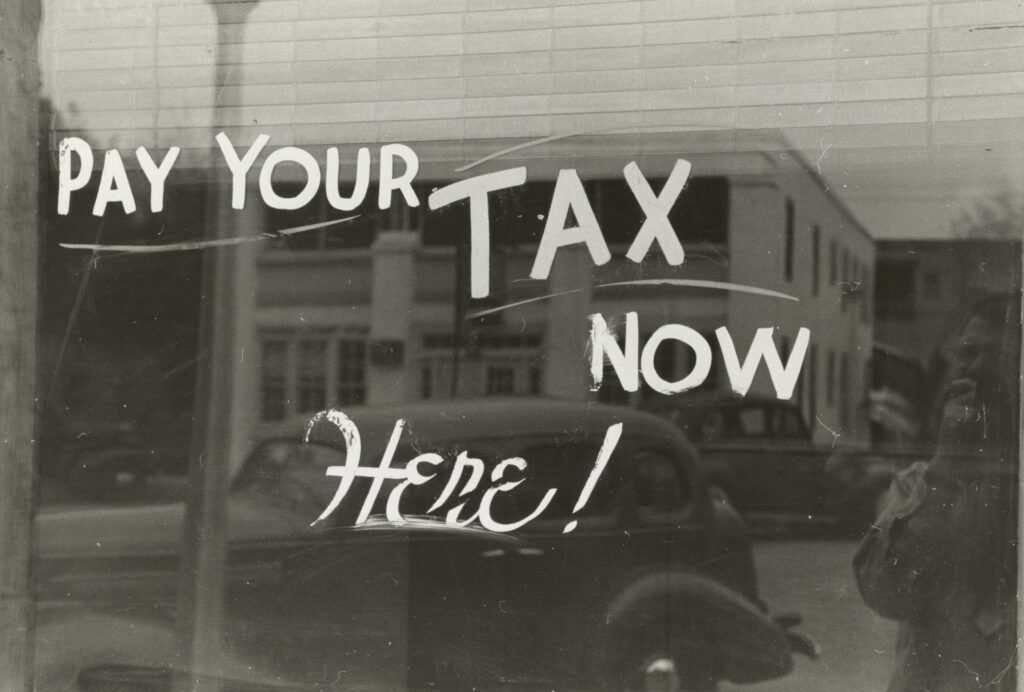Expats and Finances in Switzerland
Switzerland is a dream destination for many expats, with its stunning alpine views, high salaries, and excellent quality of life. But let’s be franc (pun intended): Switzerland is also one of the most expensive countries in the world. Managing your money here isn’t as simple as enjoying cheese and chocolate. If you’re coming to work in Switzerland, you’ll need to navigate a unique financial landscape. Don’t worry – we’ll guide you through the key aspects of Swiss finances step by step, with clear tips.
High Salary, High Cost of Living
It’s true that Swiss salaries are high. However, the cost of living will quickly remind you where that money goes. Housing, groceries, eating out, transportation – pretty much everything comes with a hefty price tag. In cities like Zurich or Geneva, a one-bedroom apartment can easily cost CHF 2,000 or more per month.
High salaries (often with a 13th-month bonus) help offset these costs, but budgeting is still essential. Plan for your big expenses first – rent, insurance, taxes – then see what’s left for leisure and savings. It’s a good idea to track your spending in the first few months; you might be surprised how quickly Swiss francs can disappear. With a solid budget and some smart choices, you can enjoy the Swiss lifestyle without your wallet yodeling in pain.
Opening a Swiss Bank Account
One of the first things to do as a new expat is open a local bank account. Most employers will require a Swiss account to pay your salary. Opening one is usually straightforward.
Choosing a bank: You’ll find traditional banks (like UBS or a cantonal bank) and modern digital-only banks. Traditional banks offer full services and branches, but often charge monthly fees and higher fees for things like international transfers. Digital-only banks often have no monthly fees and offer great exchange rates for card payments or transfers, but they have no physical branches. The best choice depends on your preferences – convenience and lower fees versus in-person service.
Setting up: To open an account, you typically need your passport, a Swiss address, and proof of residence (your residence permit). Many banks let you do this online with a video ID check. After approval, you’ll get your account details (IBAN) and debit card in a few days.
Everyday banking: Switzerland runs on Swiss francs (CHF). Cash is still used for small transactions, though cards are widely accepted. You’ll also encounter TWINT, a popular mobile payment app linked to your bank for easy payments. Credit cards are common too, but they often have annual fees. It’s best to use a Swiss account and card for day-to-day spending – you’ll avoid foreign card fees and get fairer exchange rates.
Taxes in Switzerland

Swiss taxes can be a bit complicated, but here are the essentials: Taxes are levied at three levels – federal, cantonal, and municipal (local). This means your tax rate depends heavily on which canton (and even which town) you live in. Some cantons have very low income taxes (for example, Zug or Schwyz), while others are higher (like Geneva). In some cases, your total tax in one canton can be almost double what it would be in another for the same income.
If you’re working in Switzerland on a residence permit (usually a B permit), your employer will typically deduct income tax from your salary each month. This is called withholding tax (“Quellensteuer”). It simplifies things – you get your salary net of tax, and often you don’t need to file a tax return. If your annual income is below about CHF 120,000 (and you have no significant outside income), the withholding tax usually covers your liability. Above that, you will file a tax return to settle the exact amount. The return lets you account for deductions (like if you pay for additional insurance or commute costs) and ensures you’re taxed correctly for your situation.
Switzerland even has a small wealth tax on net assets above certain thresholds (with low rates, usually under 1%). And there are also tax breaks to take advantage of – for instance, contributions to a Pillar 3a retirement account are deductible. Capital gains (profits from selling investments) are generally tax-free for private individuals. Also, thanks to Switzerland’s double taxation treaties with many countries, you shouldn’t pay tax twice on the same income. If you have income abroad, Switzerland will usually exempt it or give a credit so you don’t get taxed twice.
Social Security and Pensions (Three Pillars)
Switzerland’s pension system is divided into three parts, known as the “three pillars”:
- Pillar 1 – State Pension (AHV/AVS): This is a basic state pension providing a foundation in retirement (it also covers disability and survivors’ benefits). It’s funded by payroll contributions from you and your employer. Pillar 1 alone won’t fund a luxurious retirement, but it ensures a baseline income in old age.
- Pillar 2 – Occupational Pension (BVG/LPP): This is a workplace pension plan. If you’re employed above a certain income level, your employer enrolls you in a pension fund, and both you and your employer contribute to it. When you retire, you can take this money as a pension or a lump sum. Importantly, if you leave Switzerland before retirement, you can take your accumulated Pillar 2 savings with you (cash out or transfer, subject to certain rules).
- Pillar 3 – Private Savings: This voluntary pillar lets you save for retirement with tax benefits. The main option is Pillar 3a: you can contribute around CHF 7,000 per year and deduct this amount from your taxable income. The money is generally locked until retirement age (except a few special cases like leaving Switzerland early or buying a home). You can keep Pillar 3a funds in a bank savings account or invest them in a fund for growth. The big plus is the tax break and the chance to build extra retirement savings on top of the first two pillars.
For expats, you will be paying into Pillar 1 and 2 via your salary. Even if you only stay a few years, those contributions aren’t lost – you’ll be entitled to a small Swiss pension from Pillar 1 eventually, and your Pillar 2 money can be withdrawn or preserved when you leave. Pillar 3a is optional but highly beneficial if you have the income to contribute, since it saves on taxes and builds your nest egg. Just remember to choose a sensible Pillar 3a (many expats go with a bank or investment fund account rather than an insurance-tied plan, which can be inflexible).
Insurance: Health and Beyond

Switzerland requires you to have certain insurances, and others are just a good idea. Here’s the rundown:
Health Insurance (mandatory): Every resident must have basic health insurance, and you’re expected to get it within 3 months of arriving. The basic plan is the same across all insurers by law – it covers most medical needs. You choose an insurance provider and a deductible (how much you pay out-of-pocket before coverage kicks in). Prices vary, but on average an adult pays around CHF 300–500 per month for the basic package. This will be one of your larger expenses, so include it in your budget. Compare providers and premiums – coverage is identical by law, so price and customer service are the main differences. (Note: basic insurance doesn’t include dental care, so dental is usually paid separately or via optional policies.)
Personal Liability Insurance (recommended): This covers damage or injury you accidentally cause to other people or their property. While not required legally, many landlords insist you have it (in case you, say, flood your apartment or break something structural). It costs roughly CHF 100 per year for high coverage (millions of francs). Considering the protection it offers, it’s a no-brainer for peace of mind.
Household Contents Insurance (optional): This protects your personal belongings (furniture, electronics, etc.) against things like theft, fire, or water damage. It’s often bundled with liability insurance and is also inexpensive. If you have valuable items or just want extra security, you can get this coverage for a modest premium.
Other insurance: If you have a car, third-party car insurance is mandatory (and you’ll likely get collision coverage if your car is new or valuable). Beyond that, you’ll hear about legal insurance, travel insurance, pet insurance, and more. These are entirely optional – get them only if they make sense for your situation. Insurance agents might push every policy under the sun – don’t let them pressure you. Cover the major risks (health, liability, and maybe household/car), and use your judgment on the rest. You can always add additional coverage later if you feel you need it.
Saving, Investing, and Moving Money
Even with high living costs, you might be able to save and invest money as an expat in Switzerland – especially if you’re earning a good salary. If possible, contribute to a Pillar 3a account each year – this gives you a tax break and builds up savings you can use in retirement or when you leave Switzerland.
Investing is key to growing wealth, but be mindful of fees. Swiss banks offer investment services, but they can be pricey. You might look into low-cost index funds or an online brokerage to invest in stocks or ETFs. Switzerland won’t tax your capital gains from private investments, which is a nice perk for investors. Avoid overly complex, high-fee financial products – often, simpler and low-cost investments yield better results in the long run.
If you need to send money to your home country, avoid doing it through your Swiss bank due to high fees and poor exchange rates. Instead, use low-cost international transfer services or fintech options. Providers like Wise or Revolut offer much better exchange rates and lower fees, which can save you a lot. Also, consider the timing and frequency of your transfers – some people send money monthly, while others wait for a favorable exchange rate or send larger amounts less often. By being strategic, you keep more of your money when moving it across borders.
Leaving Switzerland

When you leave Switzerland permanently, you can generally take your pension savings with you. If you move to an EU/EFTA country, you might have to leave the compulsory part of your Pillar 2 in a Swiss account until retirement age, but you can withdraw the rest. Moving outside the EU generally allows you to withdraw the entire amount. These pension withdrawals will be taxed by Switzerland at a special rate – however, the tax is lower in some cantons than others. Many expats take advantage of this by moving their Pillar 2 funds to a vested benefits account in a low-tax canton (like Schwyz or Zug) before cashing out, so less of their money goes to taxes.
Also, remember to cancel your health insurance (and any other contracts like your apartment lease, mobile phone, internet, gym membership) effective from your departure date, giving the required notice. Be sure to deregister with the local authorities to officially record your departure – this is needed to stop certain automatic obligations. If you’ve been filing regular tax returns, you’ll likely need to file one more for the year of departure covering your time in Switzerland. Plan ahead and tie up these loose ends, and your exit will be smooth – you’ll take all your hard-earned Swiss savings with you.
Managing your money as an expat made easy
Managing your finances as an expat in Switzerland may seem complicated at first, but with a bit of knowledge and planning, you can master it. Remember to budget for the big-ticket items, take advantage of Swiss tax deductions and pension opportunities, and avoid common pitfalls (like expensive banking fees or unnecessary insurance). Switzerland is an amazing place to live and work – yes, you pay a premium to be here, but for many it’s worth every franc.
Most importantly, you don’t have to figure it all out alone. If you ever feel unsure about the best financial moves or want an expert to review your plan, consider reaching out: Finanzberatung Rubino is always there for your personalized advice. I am here to help expats like you navigate the Swiss financial landscape – from setting up a budget and choosing the right investments to planning for retirement or an eventual move. With the right approach, you can enjoy your Swiss adventure to the fullest, knowing that your money matters are under control and your financial future is secure.




